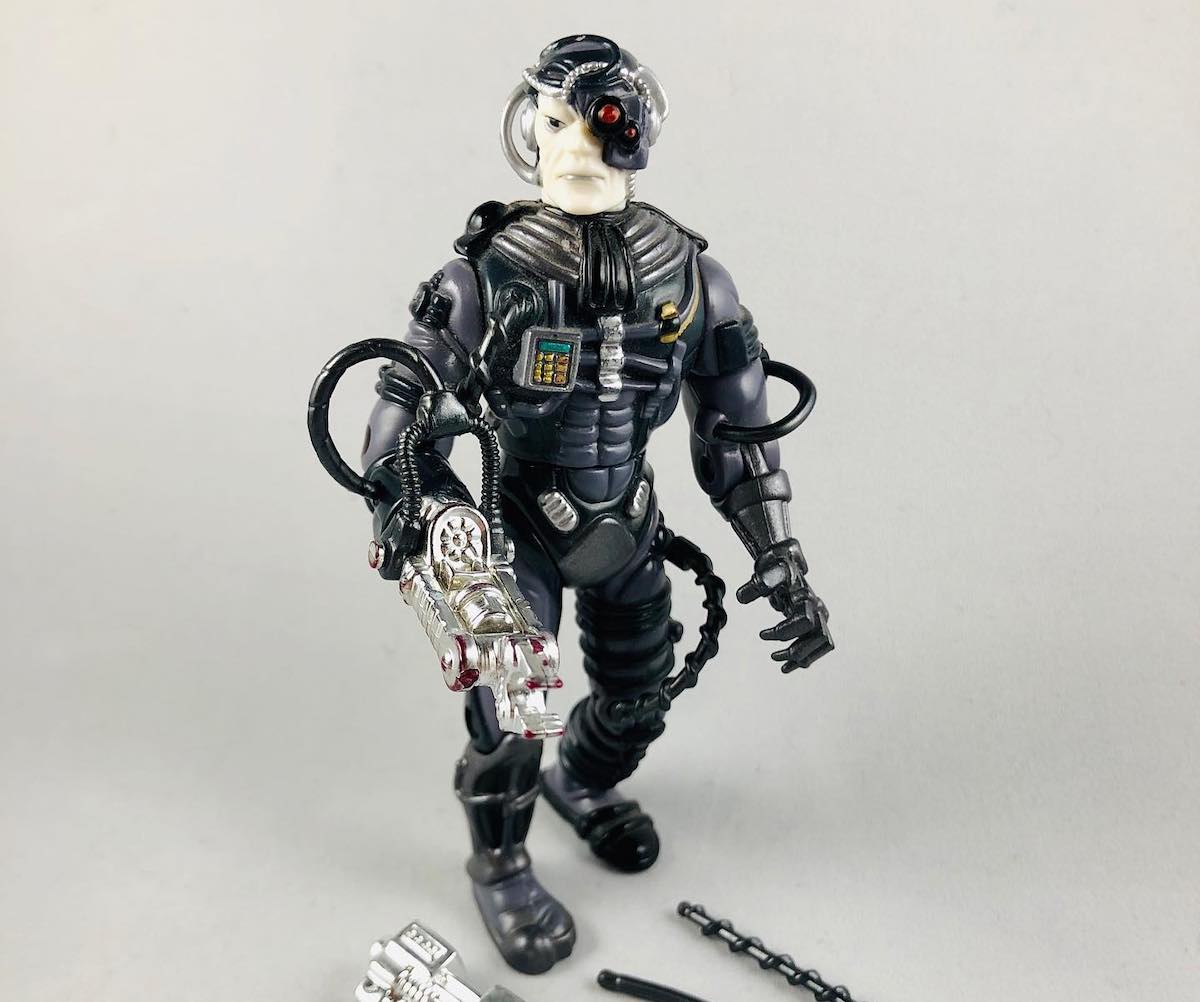I watched “Descent” in the recently-finished basement at my parents’ place, just after school ended in the summer of 1993. We had the whole posse over, and Mark and I showed some of our movies beforehand, and we got into a waterfight to settle various year-long grudges besides. Everything was damp and hormonal. I had a large, disastrous crush on one girl in our circle of friends who, having failed to bring a change of clothes to the event, was now wandering around the basement wearing nothing but one of my borrowed t-shirts, and took the opportunity to step directly over me while I was lying on the floor – the first time anything like that ever happened. And then we watched Star Trek: The Next Generation, because that’s how things go in my life.
On the special features of the blu-ray, writer Naren Shankar mentions that Season 6 was the best year of the show, which he described as just clicking and clicking. Uh… no. This rewatch project has convinced me of nothing more completely than that the Next Gen I loved, the reason I gathered all my friends together in that basement after school in the summer of ‘93, had actually ended at least 2 years prior to that night. Season 6 isn’t quite as much of a wash as Season 5 had been – there are some true, series-wide highlights – but the sails have gone slack, nonetheless. I can’t recall if we knew at this point that Next Gen would conclude at the end of the following year, but by the time Season 7 ended its run, Next Gen’s death was less a loss than a mercy.
“Descent” is remembered for its star wattage more than anything else, as Professor Hawking makes his warm-hearted appearance in the teaser. The episode behind the teaser isn’t bad, either, though your enjoyment of it might be directly proportional to your interest in Hugh the Borg. I hate Hugh, and feel generally that “I Borg” is the flashpoint for Star Trek’s complete annihilation of the Borg as a concept. “Descent,” therefore, is the first in a line of repercussions expanding outward from that event, although otherwise it does a better job of accounting for the ramifications of the Hugh adventure than the Hugh adventure itself did. Nonetheless, the damage to the Borg is done, and “Descent” is the first iteration of a series of reboots that would try to take the species away from their roots as Next Gen’s premier undefeatable enemy.
Here, the Borg are given the conceptual equivalent of the “running zombies” revamp made famous by 28 Days Later. These Borg are emotional, individualistic, and mighty pissed off. They fight like they mean it. I like the neo-Borg ship, identifying by visual design that these Borg have opinions and aesthetics, and aren’t content to fly around in a cube. The effects on the blu-ray are, predictably, fantastic, and Jay Chattaway’s motif for the neo-Borg, in combination with sweeping space shots of the Borg ship moving powerfully past the Enterprise, have some grandeur.
The problem is that the Borg just don’t seem like much of a threat here – their involvement in the episode feels perfunctory. Their introduction into the episode is matter-of-fact, and their part in the story isn’t nearly as interesting as the character drama, in which Data has his first true emotional experience – and it’s a bad one. He has an outburst of rage while fighting the Borg at the start of the episode, and strangles the nearest drone to death with his bare hands. The best parts of the episode delve into what that might mean: first gently, as Data sits in session with Counselor Troi and describes having tried to evoke a second emotional outburst from himself using everything from opera to pornography; and then more dangerously, as he and Geordi try to turn off the safety protocols on the holodeck to have a Borg projection attempt to kill him. Standing uncomprehendingly outside the nuance of emotion, android-impassive, and behaving like a risk addict, the Data of “Descent” is a scary character indeed.
Intentionally or not, the episode is circling an uncomfortable idea from earlier seasons (I’m thinking mostly of “The Most Toys”), which wondered whether some functional essence of Data’s programming makes him something akin to a sociopath. The further down that thread this episode… er… descends, the more the answer seems to be yes. Data’s first emotion has been rage; and his second, after having killed the Borg drone, turns out to have been pleasure. From here, it’s a hop and a skip to Data going rogue and vanishing “up the river” to pursue the darkest lusts of his repressed personality.
It’s a Ron Moore script, off a Jeri Taylor’s story, and it doesn’t entirely work. There are a lot of good pieces here that feel like they needed another draft or a better director to really pull together into something cohesive. Things move too quickly once Crosis is aboard the ship, playing Satan to Data’s Eve; and the threads and themes don’t work tightly enough together to bring the drama to a rolling boil. Nonetheless, the ideas the episode raises are intriguing. “Descent” is also visually neater than most episodes this season, given a gunmetal-grey patina that complements the emotional throughline, and bolstered by a nice bit of Fascist production design in the final moments as our heroes arrive at Lore’s throne room. To be continued, and happy new year!

Blogging The Next Generation is winding down to the end, as I work my way through the episodes of Star Trek: The Next Generation on blu-ray. The final season is in stores now.
